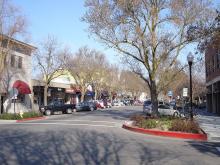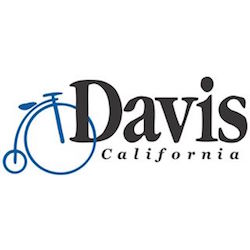
Fast, affordable Internet access for all.

Finding the right moment to move forward with a publicly owned broadband infrastructure investment isn’t always cut and dry. Davis, California, has considered the possibilities for the past three years and at the June city council meeting, decided to assign city staff the task of examining the details of an incremental fiber optic network deployment. “We can’t approve a municipal fiber network today,” Councilman Will Arnold said, “but we can kill it, and I’m not willing to do that.”
Broadband Advisory Task Force
Davis’s Broadband Advisory Task Force (BATF) recommended to the city council that Davis move forward with developing a fiber optic network. The task force has examined the issue since it was formed in 2016, at the urging of citizens who formed a group calling themselves DavisGIG. The group’s main purpose has been to encourage the city to begin the process of examining the possibility of developing a Fiber-to-the-Home (FTTH) network.
The city hired Finley Engineering and CCG Consulting, which worked together to deliver results of a feasibility study with recommendations in March 2018. They concluded that a citywide build out funded completely with one bond issue wasn’t feasible. In their opinion, Davis would require additional funding, such as sales tax or property taxes. Citywide deployment, which consultants estimate to be around $106.7 million, would be high due to poor pole condition, labor costs, and high housing density. An incremental approach, however, is a goal that Davis should consider.
Read the feasibility study here [pdf].
 Still Needed
Still Needed
The consultants found that Davis would certainly benefit from a publicly owned fiber network. A significant digital divide problem and lack of choice in Davis has residents and businesses caught with few options. After examining possible models, Finley and CCG suggested that one possibility is a public-private partnership with one service provider.
The BATF and CCG collaborated on a follow-up residential survey, asking potential subscribers how likely they would be to switch from a private sector Internet access company to a municipal ISP. In a letter from the BATF to the city council:
The results: 21 percent of homes said they would definitely buy broadband from a new city fiber network and another 31 percent said they probably would. Thirty percent said they might.
“This is significantly lower than what the consultants have seen in many other markets,” [city] staff reported.
Nearly 80 percent said they would be lured to a new network by lower prices; 62 percent by faster speeds; and 43 percent by better customer service.
While the survey results aren’t as encouraging as those advocating for a municipal fiber network in Davis would like to see, members of the BATF express the direct and indirect benefits that fiber connectivity would bring to other sectors in Davis. UC Davis, local schools, and libraries all need fast, affordable, reliable connectivity. Davis has in recent years also searched for ways to retain and attract new economic development to the city of 67,000.
In an opinion piece in support of fiber infrastructure in Davis, Robert Nickerson who is an owner of a local Internet service provider recently wrote in the local Enterprise:
Businesses would come and stay here if they could connect their buildings to one another for hundreds of dollars a month instead of thousands, and be able to have it available in days versus months. Having the reassurance that the community manages fiber optic infrastructure throughout the community and offers leased access to it lets businesses know we prioritize what they need. It changes the calculus from locating in Davis to a potential drawback to a solid plus.
 Doug Walter, president of the board of the nonprofit Davis Community Network (DCN), stressed the ability for the community to have local control and to ensure nework neutrality. DCN provides Internet access and related services to local nonprofit organizations, public agencies, schools, and individuals.
Doug Walter, president of the board of the nonprofit Davis Community Network (DCN), stressed the ability for the community to have local control and to ensure nework neutrality. DCN provides Internet access and related services to local nonprofit organizations, public agencies, schools, and individuals.
Unanimous Vote
Even though several council members expressed hesitation, after discussion the entire board voted to continue investigating an incremental deployment approach. Several community members encouraged the vote, including former City Council candidate Ezra Beeman, who described his interest as a local entrepreneur:
“I’m a small-business owner, I’m one of those folks that works downtown in the Internet black hole … It’s enormously difficult when service cuts out, lags and there’s nothing I can do about it because I’ve got no other options."
Image credit Miles530 [Public domain]
